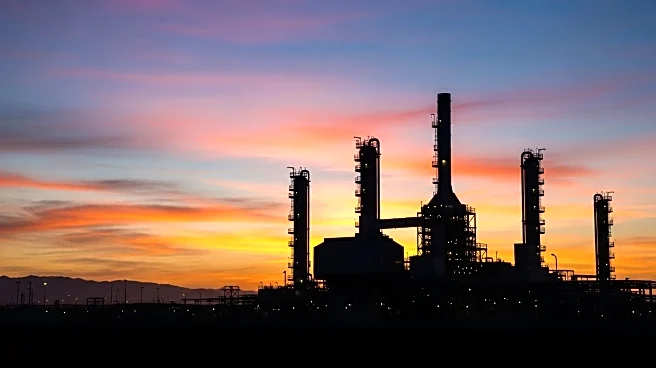What's Happening?
Exxon Mobil Corp. is required to defend itself in a lawsuit filed by Sierra Club Inc. and other environmental groups. The lawsuit alleges that Exxon created a public nuisance by producing plastic polymers and distributing them throughout California. Chief Judge Richard Seeborg of the US District Court for the Northern District of California ruled that the nonprofits sufficiently claimed Exxon foresaw harm from its single-use plastics. However, the groups did not adequately allege that Exxon’s actions violated California’s Unfair Competition Law, and they have been given 30 days to amend this claim.
Why It's Important?
This legal development is significant as it highlights the growing scrutiny on major corporations regarding environmental impacts, particularly in the realm of plastic pollution. The case against Exxon Mobil could set a precedent for how environmental laws are applied to corporate practices, potentially influencing future litigation and regulatory measures. If successful, the lawsuit could lead to stricter controls on plastic production and distribution, affecting industries reliant on plastic materials. Environmental groups stand to gain by advancing their cause for greater corporate accountability, while Exxon faces potential reputational and financial repercussions.
What's Next?
The environmental groups involved in the lawsuit have 30 days to amend their claim regarding the violation of California’s Unfair Competition Law. Depending on the outcome, Exxon Mobil may face further legal challenges and potential penalties. The case could prompt other environmental organizations to pursue similar legal actions against corporations, increasing pressure on businesses to adopt more sustainable practices. Stakeholders, including policymakers and industry leaders, will likely monitor the case closely as it may influence future environmental regulations and corporate strategies.
Beyond the Headlines
The lawsuit against Exxon Mobil underscores broader ethical and cultural shifts towards environmental responsibility and sustainability. As public awareness of plastic pollution grows, companies may face increased demands for transparency and sustainable practices. This case could contribute to a long-term shift in how businesses approach environmental stewardship, potentially leading to innovations in materials and production processes that minimize ecological impact.









